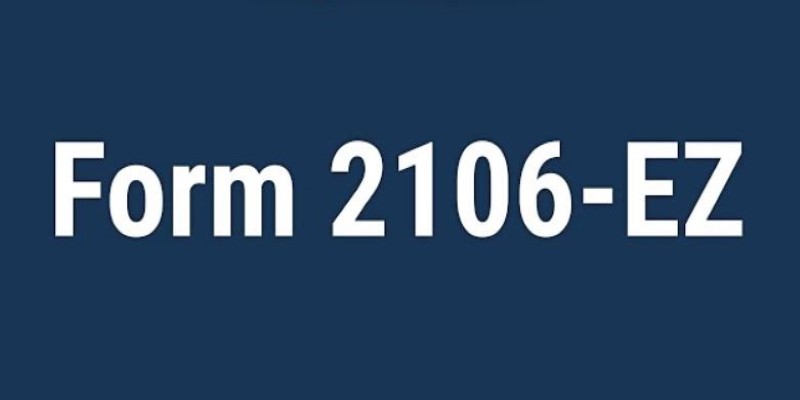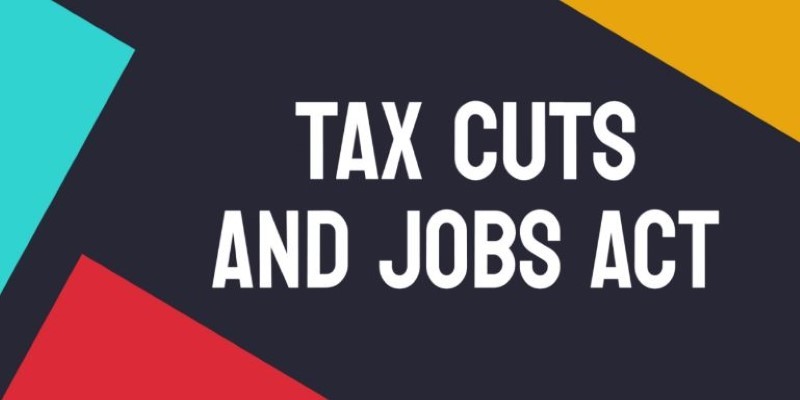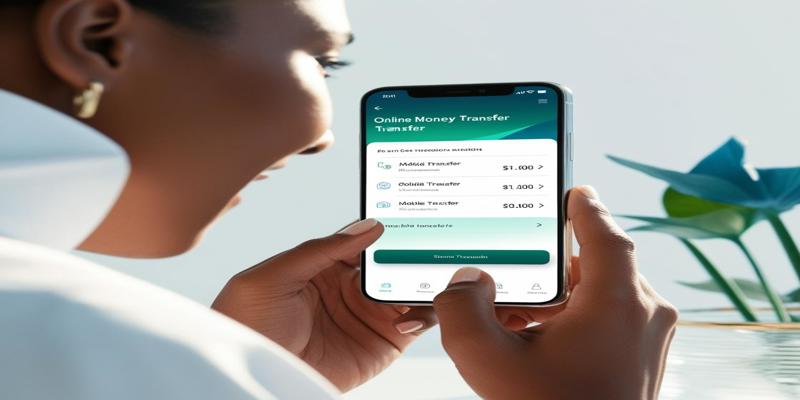Understanding Form 2106-EZ: Your Guide to Unreimbursed Employee Business Expenses
Dec 13, 2024 By Vicky Louisa
Form 2106-EZ may not be well-known, but for employees who pay for work-related expenses out of pocket, it can offer valuable tax relief. Unlike business owners with multiple expense deduction options, employees have fewer avenues.

This form helps employees deduct unreimbursed business expenses, such as travel and supplies, reducing taxable income. In this guide, we will explore who is eligible and how Form 2106-EZ can make tax time less painful and easier for you to save when tax time comes.
Form 2106-EZ: Unreimbursed Employee Business Expenses
Form 2106-EZ was to assist employees in claiming the unreimbursed expenses related to their jobs, and this form was used to simplify the way of lowering taxable income. These expenses may include traveling and accommodation expenses, transportation costs, and other necessary supplies an employee needs in order to perform the job. Form 2106-EZ thereby allowed employees to itemize such deductions of these expenses and to recover a few of the expenses that they incurred and paid out of pocket.
However, with the Tax Cuts and Jobs Act of 2017, the rules around unreimbursed employee business expenses changed significantly. The act eliminated Form 2106-EZ for most employees, narrowing eligibility to a few specific groups. Today, only certain individuals can claim these deductions, including armed forces reservists, qualified performing artists, and government officials paid on a fee basis. These professions often require out-of-pocket expenses for work-related tasks, and employers do not typically reimburse such costs. As a result, these groups can still use Form 2106 (the parent form of 2106-EZ) to claim their deductions.
For those who remain eligible, Form 2106-EZ continues to be a valuable tool for reducing taxable income by claiming necessary job-related expenses. Though it is no longer widely applicable, understanding how to use the form is essential for individuals in these specific roles who face unreimbursed business expenses and wish to benefit from potential tax savings.
Qualifying for the Deduction
Due to the Tax Cuts and Jobs Act, fewer employees qualify to use Form 2106 for unreimbursed expenses. Eligible groups include military reservists, fee-based government officials, qualified performing artists, and those with impairment-related work expenses. For most other employees, unreimbursed business expenses are no longer deductible, making Form 2106-EZ unavailable. If you qualify, its important to understand these specific deductions and how they may reduce your taxable income.
Lets break down the categories of employees who can still claim these expenses:
Armed Forces Reservists: If you serve as a reservist and incur travel expenses that aren't reimbursed by the military, you can deduct those costs.
Qualified Performing Artists: This includes artists, actors, and musicians who work multiple jobs to support their careers and may have expenses related to travel, instruments, and supplies.

Fee-Based Government Officials: These are officials who are paid based on fees for services rather than a salary. They often face unique job expenses that cant be reimbursed.
Employees with Disability-Related Work Expenses: This applies to individuals with disabilities who incur necessary expenses to support their employment.
If you fall into one of these categories, Form 2106 can help you deduct unreimbursed employee expenses, which may make a noticeable difference in your taxable income.
Filling Out Form 2106 for Unreimbursed Employee Expenses
If you qualify to deduct unreimbursed employee expenses, the process involves accurately completing Form 2106. Although the 2106-EZ has been eliminated, the original Form 2106 is still available and requires you to detail the expenses in categories like transportation, lodging, meals, and other necessary expenses. Heres a step-by-step outline:
Enter Your Expenses by Category: Start by breaking down your unreimbursed expenses into categories. This includes any transportation costs (for work-related travel), lodging, and meals, as well as other business-related expenses like tools or work supplies.
Calculate Your Total Expenses: Sum all your expenses to get a total unreimbursed expense amount. This total will eventually go on your Schedule 1 form (if youre itemizing deductions).
Determine Mileage Expenses: If you use your personal vehicle for work purposes, the IRS allows a standard mileage rate to calculate deductions. For 2024, this rate should be checked periodically, as it changes based on fuel costs and other factors.
Report Expenses on Schedule 1: After calculating your total deductions, include them in the "Additional Income and Adjustments to Income" section on Schedule 1. This will then flow into your overall adjusted gross income, potentially reducing the amount of taxes you owe.
While the form may seem daunting at first, breaking it down into categories can simplify the process. Remember, keeping detailed records of your expenses is crucial in case the IRS requests documentation.
Understanding Changes Under the Tax Cuts and Jobs Act
The Tax Cuts and Jobs Act significantly affected the ability of employees to deduct unreimbursed business expenses. The most sweeping change was the suspension of the miscellaneous itemized deductions, including unreimbursed business expenses for most employees. The law essentially means that unless you fall into one of the specified categories (like performing artists or military reservists), youre no longer eligible to deduct unreimbursed expenses, which makes Form 2106-EZ unnecessary for most employees.

These changes were enacted to streamline the tax filing process and reduce itemized deductions for the majority of taxpayers, shifting the focus toward the standardized deduction, which increased significantly under the new law. So, while Form 2106-EZ might have been simpler to file in the past, most employees now benefit more from the higher standard deduction, eliminating the need for itemizing many deductions altogether.
Conclusion
While Form 2106-EZ is no longer widely applicable due to changes from the Tax Cuts and Jobs Act, understanding unreimbursed employee expenses remains valuable for qualifying individuals like military reservists and certain artists. Keeping detailed records and consulting IRS guidelines can help employees reduce tax stress. If you believe you qualify for deductions, seeking tax advice will ensure you maximize available benefits and stay compliant with current tax regulations.








